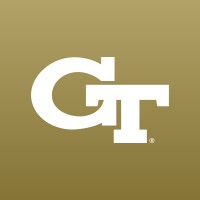
The University of Toledo University College Company Cyber Security Posture
utoledo.eduUniversity College serves students who are undecided about their major, transferring from one program to another, returning to complete a degree, adult learners pursuing online degree programs, or veteran or active military status. Earn a Bachelor's Degree: -University Studies: The University Studies degree is designed to allow you to build an individualized bachelor’s degree around your interests and goals. You are able to emphasize your personal and professional goals, as well as interests through a customized plan of study. The degree awarded is either the Bachelor of Arts or the Bachelor of Science, depending upon course selections, which will be coordinated with your academic advisor. -Liberal Studies: The Liberal Studies Degree program is designed for working adults. The program gives you the advantage of integrating your real-world experiences with your college education to meet your personal learning goals and gain rewards that come with academic achievement.
UTUC Company Details
the-university-of-toledo-university-college
3 employees
138
611
Higher Education
utoledo.edu
Scan still pending
THE_2394081
In-progress
Between 800 and 900
This score is AI-generated and less favored by cyber insurers, who prefer the TPRM score.
 UTUC Global Score
UTUC Global Score.png)

The University of Toledo University College Company Scoring based on AI Models
| Model Name | Date | Description | Current Score Difference | Score |
|---|---|---|---|---|
| AVERAGE-Industry | 03-12-2025 | This score represents the average cybersecurity rating of companies already scanned within the same industry. It provides a benchmark to compare an individual company's security posture against its industry peers. | N/A | Between 800 and 900 |
The University of Toledo University College Company Cyber Security News & History
| Entity | Type | Severity | Impact | Seen | Url ID | Details | View |
|---|---|---|---|---|---|---|---|
| The University of Toledo University College | Data Leak | 50 | 1 | 05/2018 | THE18358722 | Link | |
Rankiteo Explanation : Attack without any consequencesDescription: UT alerts some faculty & students of lost flash drive which contained Social Security numbers. A UT faculty member lost an unencrypted flash drive containing personal information belonging to some students, faculty, staff, and external research coordinators. That information included names, addresses, Social Security numbers and possibly birth dates. There is no evidence that the information has been accessed or used improperly. UT conducted a full investigation of the incident and the employee has been disciplined. The university is offering a free, one-year membership to an identity theft monitoring service. | |||||||
The University of Toledo University College Company Subsidiaries

University College serves students who are undecided about their major, transferring from one program to another, returning to complete a degree, adult learners pursuing online degree programs, or veteran or active military status. Earn a Bachelor's Degree: -University Studies: The University Studies degree is designed to allow you to build an individualized bachelor’s degree around your interests and goals. You are able to emphasize your personal and professional goals, as well as interests through a customized plan of study. The degree awarded is either the Bachelor of Arts or the Bachelor of Science, depending upon course selections, which will be coordinated with your academic advisor. -Liberal Studies: The Liberal Studies Degree program is designed for working adults. The program gives you the advantage of integrating your real-world experiences with your college education to meet your personal learning goals and gain rewards that come with academic achievement.
Access Data Using Our API

Get company history
.png)
UTUC Cyber Security News
Tech-Savvy Sophomore Follows Passion to New Cyber Security Program
Bollinger is among the first students to pursue an undergraduate cyber security degree at The University of Toledo's College of Engineering.
Inaugural director of new Lincoln University Security Sciences Institute named
The inaugural director of Lincoln University's new Security Sciences Institute will be Adrian S. Petrescu.
Wright State to offer summer research experience in secure and trusted microelectronics for undergraduate students
Wright State University will offer undergraduate students cutting-edge research experiences in cybersecurity during a new summer training ...
UToledo to Train Teenagers in Cybersecurity June 10-14
“Our goal with this camp is to introduce teenagers to the field of cybersecurity, educate them about online dangers and share best practices to ...
University of Toledo cutting some 'low-demand degree programs,' merging others
The University of Toledo is cutting "low-demand degree programs" beginning in the fall 2024-25 school year, a spokesperson told WTOL 11 on Monday.
School of Engineering and Computing is Home to Cybersecurity Center
Fairfield's School of Engineering and Computing offers students a hands-on learning experience using real-world applications in its state-of-the ...
Air Force teams up with UToledo to train cybersecurity savvy teenagers
High school students from around northwest Ohio will gather next week on the University of Toledo campus to participate in a cybersecurity ...
UToledo Cyber Security Club Performs Well in National CyberForce Competition
The University of Toledo Club for Cyber Security recently ranked 33rd out of 144 teams in the CyberForce Competition 2022 organized by the ...
Wright State receives federal grant to launch National Pathway to Success cybersecurity training program
Wright State University received a federal grant to lead a new national cybersecurity training program for students from community colleges ...

UTUC Similar Companies

Carnegie Mellon University
Carnegie Mellon University founder Andrew Carnegie said: "My heart is in the work." No statement better captures the passion and drive of our people to make a real difference. At Carnegie Mellon, we're not afraid of the work. Our educational environment creates problem solvers, drivers of

University of Waterloo
University of Waterloo is a leader in innovation that drives economic and social prosperity for Canada and the world. We are home to a renowned talent pipeline, game-changing research and technology, and unmatched entrepreneurial culture, that together create solutions to tackle today’s and tomorrow

University of Virginia
The University of Virginia was founded in 1819 as the model for modern universities that has since been emulated all over the world. After 200 years, this iconic institution of higher learning endures because it is fully immersed in meeting the greatest challenges of our time, day in and day out. It

University of Florida
University of Florida is a major, public, comprehensive, land-grant, research university. The state's oldest, largest and most comprehensive university, it is among the nation's most academically diverse public universities. University of Florida has a long history of established programs in interna

Georgia Institute of Technology
The Georgia Institute of Technology is one of the nation's premier research universities providing a focused, technologically based education to more than 25,000 undergraduate and graduate students . Ranked seventh among U.S. News & World Report's top public universities, Georgia Tech offers degrees

University of Illinois Urbana-Champaign
The University of Illinois Urbana-Champaign is dedicated to building upon its tradition of excellence in education, research, public engagement and economic development. More than 3,000 faculty members discover and create new knowledge. Their work is an economic engine for the state and is recognize

Frequently Asked Questions (FAQ) on Cybersecurity Incidents
UTUC CyberSecurity History Information
Total Incidents: According to Rankiteo, UTUC has faced 1 incidents in the past.
Incident Types: The types of cybersecurity incidents that have occurred include ['Data Leak'].
Total Financial Loss: The total financial loss from these incidents is estimated to be {total_financial_loss}.
Cybersecurity Posture: The company's overall cybersecurity posture is described as University College serves students who are undecided about their major, transferring from one program to another, returning to complete a degree, adult learners pursuing online degree programs, or veteran or active military status. Earn a Bachelor's Degree: -University Studies: The University Studies degree is designed to allow you to build an individualized bachelor’s degree around your interests and goals. You are able to emphasize your personal and professional goals, as well as interests through a customized plan of study. The degree awarded is either the Bachelor of Arts or the Bachelor of Science, depending upon course selections, which will be coordinated with your academic advisor. -Liberal Studies: The Liberal Studies Degree program is designed for working adults. The program gives you the advantage of integrating your real-world experiences with your college education to meet your personal learning goals and gain rewards that come with academic achievement..
Detection and Response: The company detects and responds to cybersecurity incidents through {description_of_detection_and_response_process}.
Incident Details
Incident 1: Ransomware Attack
Title: {Incident_Title}
Description: {Brief_description_of_the_incident}
Date Detected: {Detection_Date}
Date Publicly Disclosed: {Disclosure_Date}
Date Resolved: {Resolution_Date}
Type: {Type_of_Attack}
Attack Vector: {Attack_Vector}
Vulnerability Exploited: {Vulnerability}
Threat Actor: {Threat_Actor}
Motivation: {Motivation}
Incident 2: Data Breach
Title: {Incident_Title}
Description: {Brief_description_of_the_incident}
Date Detected: {Detection_Date}
Date Publicly Disclosed: {Disclosure_Date}
Date Resolved: {Resolution_Date}
Type: {Type_of_Attack}
Attack Vector: {Attack_Vector}
Vulnerability Exploited: {Vulnerability}
Threat Actor: {Threat_Actor}
Motivation: {Motivation}
Common Attack Types: As of now, the company has not encountered any reported incidents involving common cyberattacks.
Identification of Attack Vectors: The company identifies the attack vectors used in incidents through {description_of_identification_process}.
Impact of the Incidents
Incident 1: Ransomware Attack
Financial Loss: {Financial_Loss}
Data Compromised: {Data_Compromised}
Systems Affected: {Systems_Affected}
Downtime: {Downtime}
Operational Impact: {Operational_Impact}
Conversion Rate Impact: {Conversion_Rate_Impact}
Revenue Loss: {Revenue_Loss}
Customer Complaints: {Customer_Complaints}
Brand Reputation Impact: {Brand_Reputation_Impact}
Legal Liabilities: {Legal_Liabilities}
Identity Theft Risk: {Identity_Theft_Risk}
Payment Information Risk: {Payment_Information_Risk}
Incident 2: Data Breach
Financial Loss: {Financial_Loss}
Data Compromised: {Data_Compromised}
Systems Affected: {Systems_Affected}
Downtime: {Downtime}
Operational Impact: {Operational_Impact}
Conversion Rate Impact: {Conversion_Rate_Impact}
Revenue Loss: {Revenue_Loss}
Customer Complaints: {Customer_Complaints}
Brand Reputation Impact: {Brand_Reputation_Impact}
Legal Liabilities: {Legal_Liabilities}
Identity Theft Risk: {Identity_Theft_Risk}
Payment Information Risk: {Payment_Information_Risk}
Average Financial Loss: The average financial loss per incident is {average_financial_loss}.
Commonly Compromised Data Types: The types of data most commonly compromised in incidents are {list_of_commonly_compromised_data_types}.
Incident 1: Ransomware Attack
Entity Name: {Entity_Name}
Entity Type: {Entity_Type}
Industry: {Industry}
Location: {Location}
Size: {Size}
Customers Affected: {Customers_Affected}
Incident 2: Data Breach
Entity Name: {Entity_Name}
Entity Type: {Entity_Type}
Industry: {Industry}
Location: {Location}
Size: {Size}
Customers Affected: {Customers_Affected}
Response to the Incidents
Incident 1: Ransomware Attack
Incident Response Plan Activated: {Yes/No}
Third Party Assistance: {Yes/No}
Law Enforcement Notified: {Yes/No}
Containment Measures: {Containment_Measures}
Remediation Measures: {Remediation_Measures}
Recovery Measures: {Recovery_Measures}
Communication Strategy: {Communication_Strategy}
Adaptive Behavioral WAF: {Adaptive_Behavioral_WAF}
On-Demand Scrubbing Services: {On_Demand_Scrubbing_Services}
Network Segmentation: {Network_Segmentation}
Enhanced Monitoring: {Enhanced_Monitoring}
Incident 2: Data Breach
Incident Response Plan Activated: {Yes/No}
Third Party Assistance: {Yes/No}
Law Enforcement Notified: {Yes/No}
Containment Measures: {Containment_Measures}
Remediation Measures: {Remediation_Measures}
Recovery Measures: {Recovery_Measures}
Communication Strategy: {Communication_Strategy}
Adaptive Behavioral WAF: {Adaptive_Behavioral_WAF}
On-Demand Scrubbing Services: {On_Demand_Scrubbing_Services}
Network Segmentation: {Network_Segmentation}
Enhanced Monitoring: {Enhanced_Monitoring}
Incident Response Plan: The company's incident response plan is described as {description_of_incident_response_plan}.
Third-Party Assistance: The company involves third-party assistance in incident response through {description_of_third_party_involvement}.
Data Breach Information
Incident 2: Data Breach
Type of Data Compromised: {Type_of_Data}
Number of Records Exposed: {Number_of_Records}
Sensitivity of Data: {Sensitivity_of_Data}
Data Exfiltration: {Yes/No}
Data Encryption: {Yes/No}
File Types Exposed: {File_Types}
Personally Identifiable Information: {Yes/No}
Prevention of Data Exfiltration: The company takes the following measures to prevent data exfiltration: {description_of_prevention_measures}.
Handling of PII Incidents: The company handles incidents involving personally identifiable information (PII) through {description_of_handling_process}.
Ransomware Information
Incident 1: Ransomware Attack
Ransom Demanded: {Ransom_Amount}
Ransom Paid: {Ransom_Paid}
Ransomware Strain: {Ransomware_Strain}
Data Encryption: {Yes/No}
Data Exfiltration: {Yes/No}
Ransom Payment Policy: The company's policy on paying ransoms in ransomware incidents is described as {description_of_ransom_payment_policy}.
Data Recovery from Ransomware: The company recovers data encrypted by ransomware through {description_of_data_recovery_process}.
Regulatory Compliance
Incident 1: Ransomware Attack
Regulations Violated: {Regulations_Violated}
Fines Imposed: {Fines_Imposed}
Legal Actions: {Legal_Actions}
Regulatory Notifications: {Regulatory_Notifications}
Incident 2: Data Breach
Regulations Violated: {Regulations_Violated}
Fines Imposed: {Fines_Imposed}
Legal Actions: {Legal_Actions}
Regulatory Notifications: {Regulatory_Notifications}
Regulatory Frameworks: The company complies with the following regulatory frameworks regarding cybersecurity: {list_of_regulatory_frameworks}.
Ensuring Regulatory Compliance: The company ensures compliance with regulatory requirements through {description_of_compliance_measures}.
Lessons Learned and Recommendations
Incident 1: Ransomware Attack
Lessons Learned: {Lessons_Learned}
Incident 2: Data Breach
Lessons Learned: {Lessons_Learned}
Incident 1: Ransomware Attack
Recommendations: {Recommendations}
Incident 2: Data Breach
Recommendations: {Recommendations}
Key Lessons Learned: The key lessons learned from past incidents are {list_of_key_lessons_learned}.
Implemented Recommendations: The company has implemented the following recommendations to improve cybersecurity: {list_of_implemented_recommendations}.
References
Additional Resources: Stakeholders can find additional resources on cybersecurity best practices at {list_of_additional_resources}.
Investigation Status
Incident 1: Ransomware Attack
Investigation Status: {Investigation_Status}
Incident 2: Data Breach
Investigation Status: {Investigation_Status}
Communication of Investigation Status: The company communicates the status of incident investigations to stakeholders through {description_of_communication_process}.
Stakeholder and Customer Advisories
Incident 1: Ransomware Attack
Stakeholder Advisories: {Stakeholder_Advisories}
Customer Advisories: {Customer_Advisories}
Incident 2: Data Breach
Stakeholder Advisories: {Stakeholder_Advisories}
Customer Advisories: {Customer_Advisories}
Advisories Provided: The company provides the following advisories to stakeholders and customers following an incident: {description_of_advisories_provided}.
Initial Access Broker
Incident 1: Ransomware Attack
Entry Point: {Entry_Point}
Reconnaissance Period: {Reconnaissance_Period}
Backdoors Established: {Backdoors_Established}
High Value Targets: {High_Value_Targets}
Data Sold on Dark Web: {Yes/No}
Incident 2: Data Breach
Entry Point: {Entry_Point}
Reconnaissance Period: {Reconnaissance_Period}
Backdoors Established: {Backdoors_Established}
High Value Targets: {High_Value_Targets}
Data Sold on Dark Web: {Yes/No}
Monitoring and Mitigation of Initial Access Brokers: The company monitors and mitigates the activities of initial access brokers through {description_of_monitoring_and_mitigation_measures}.
Post-Incident Analysis
Incident 1: Ransomware Attack
Root Causes: {Root_Causes}
Corrective Actions: {Corrective_Actions}
Incident 2: Data Breach
Root Causes: {Root_Causes}
Corrective Actions: {Corrective_Actions}
Post-Incident Analysis Process: The company's process for conducting post-incident analysis is described as {description_of_post_incident_analysis_process}.
Corrective Actions Taken: The company has taken the following corrective actions based on post-incident analysis: {list_of_corrective_actions_taken}.
Additional Questions
General Information
Ransom Payment History: The company has {paid/not_paid} ransoms in the past.
Last Ransom Demanded: The amount of the last ransom demanded was {last_ransom_amount}.
Last Attacking Group: The attacking group in the last incident was {last_attacking_group}.
Incident Details
Most Recent Incident Detected: The most recent incident detected was on {most_recent_incident_detected_date}.
Most Recent Incident Publicly Disclosed: The most recent incident publicly disclosed was on {most_recent_incident_publicly_disclosed_date}.
Most Recent Incident Resolved: The most recent incident resolved was on {most_recent_incident_resolved_date}.
Impact of the Incidents
Highest Financial Loss: The highest financial loss from an incident was {highest_financial_loss}.
Most Significant Data Compromised: The most significant data compromised in an incident was {most_significant_data_compromised}.
Most Significant System Affected: The most significant system affected in an incident was {most_significant_system_affected}.
Response to the Incidents
Third-Party Assistance in Most Recent Incident: The third-party assistance involved in the most recent incident was {third_party_assistance_in_most_recent_incident}.
Containment Measures in Most Recent Incident: The containment measures taken in the most recent incident were {containment_measures_in_most_recent_incident}.
Data Breach Information
Most Sensitive Data Compromised: The most sensitive data compromised in a breach was {most_sensitive_data_compromised}.
Number of Records Exposed: The number of records exposed in the most significant breach was {number_of_records_exposed}.
Ransomware Information
Highest Ransom Demanded: The highest ransom demanded in a ransomware incident was {highest_ransom_demanded}.
Highest Ransom Paid: The highest ransom paid in a ransomware incident was {highest_ransom_paid}.
Regulatory Compliance
Highest Fine Imposed: The highest fine imposed for a regulatory violation was {highest_fine_imposed}.
Most Significant Legal Action: The most significant legal action taken for a regulatory violation was {most_significant_legal_action}.
Lessons Learned and Recommendations
Most Significant Lesson Learned: The most significant lesson learned from past incidents was {most_significant_lesson_learned}.
Most Significant Recommendation Implemented: The most significant recommendation implemented to improve cybersecurity was {most_significant_recommendation_implemented}.
References
Most Recent Source: The most recent source of information about an incident is {most_recent_source}.
Most Recent URL for Additional Resources: The most recent URL for additional resources on cybersecurity best practices is {most_recent_url}.
Investigation Status
Current Status of Most Recent Investigation: The current status of the most recent investigation is {current_status_of_most_recent_investigation}.
Stakeholder and Customer Advisories
Most Recent Stakeholder Advisory: The most recent stakeholder advisory issued was {most_recent_stakeholder_advisory}.
Most Recent Customer Advisory: The most recent customer advisory issued was {most_recent_customer_advisory}.
Initial Access Broker
Most Recent Entry Point: The most recent entry point used by an initial access broker was {most_recent_entry_point}.
Most Recent Reconnaissance Period: The most recent reconnaissance period for an incident was {most_recent_reconnaissance_period}.
Post-Incident Analysis
Most Significant Root Cause: The most significant root cause identified in post-incident analysis was {most_significant_root_cause}.
Most Significant Corrective Action: The most significant corrective action taken based on post-incident analysis was {most_significant_corrective_action}.
What Do We Measure?
















Every week, Rankiteo analyzes billions of signals to give organizations a sharper, faster view of emerging risks. With deeper, more actionable intelligence at their fingertips, security teams can outpace threat actors, respond instantly to Zero-Day attacks, and dramatically shrink their risk exposure window.
These are some of the factors we use to calculate the overall score:
Identify exposed access points, detect misconfigured SSL certificates, and uncover vulnerabilities across the network infrastructure.
Gain visibility into the software components used within an organization to detect vulnerabilities, manage risk, and ensure supply chain security.
Monitor and manage all IT assets and their configurations to ensure accurate, real-time visibility across the company's technology environment.
Leverage real-time insights on active threats, malware campaigns, and emerging vulnerabilities to proactively defend against evolving cyberattacks.




